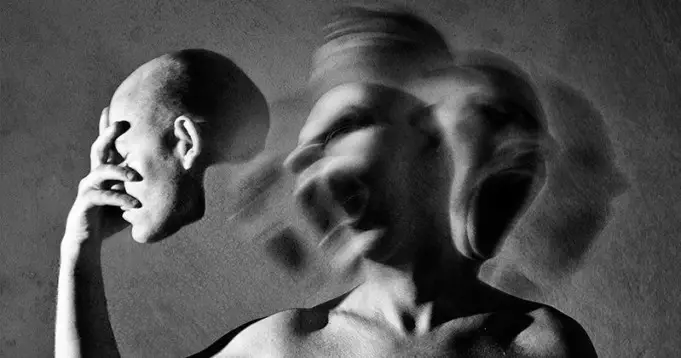Whenever you come across the word “Schizophrenia”, you may probably imagine people with multiple personalities who are prone to violence, are incoherent, homeless or live in hospitals.
You may have heard people use derogatory words like “mad” or “crazy” to describe these people. Some go as far as saying that schizophrenic individuals are demon possessed.
Even the media is no less guilty of this because they have inundated the public with a plethora of misconceptions of what schizophrenia truly is. But with people becoming more aware of mental illness and health, these age-old myths are crumbling.
Schizophrenia is a chronic mental illness that affects how a person , feels, thinks and behaves. It is characterized by delusions, hallucinations, mechanical speech and extremely disorganized thinking and behavior which make it difficult to perform normal daily functions. People with schizophrenia are said to have lost touch with reality.
This is often described as psychosis which means the sufferer may not always be able distinguish between their thoughts and reality. Studies have shown that Schizophrenia is not as common as other mental illnesses; in the US it affects less than one per cent of the population.
It affects both men and women, but men may show symptoms earlier than women. There is no known cure for schizophrenia; it is a lifelong ailment. The patient is put on a daily regimen of drugs that suppress the symptoms and enable the patient to live a normal life.
Contrary to public opinion, the majority of people living with schizophrenia are not violent, neither do they pose a danger to others. They have families they live with and are not homeless or live in hospitals.
Schizophrenia is not caused by demonic possession, lack of will-power and motivation, poor parenting, or abandonment issues.
Symptoms
According to the National Institute of Mental Health (NIMH), the signs and symptoms of schizophrenia are organized into three major categories which are positive, negative and cognitive.
Positive symptoms
They include hallucinations, dysfunctional way of thinking, delusions and irregular motor movements. Positive symptoms are abnormal behaviors that are not usually observed in healthy people. Positive symptoms typically respond well to medication.
Negative symptoms
These symptoms occur as a deviation from the normal emotional or behavioral response to stimuli. Negative symptoms typically do not respond well to medication.
They generally include reduced vocal and facial expressions, inability to experience pleasure in daily life, reduced speaking and inability to begin or sustain activities.
Negative symptoms are harder to manage than positive symptoms because they contribute to a low quality of life, poor functional ability and puts the burden on others especially family members.
Cognitive symptoms
These are concerned with attention, concentration, memory and academic performance. The cognitive symptoms of schizophrenia are subtle in some and extremely severe in others.
The symptoms include verbal memory impairment, attention deficit, and inability to use information immediately after learning it.
The symptoms appear in late adolescent period, usually between the ages 16-30. Children in very rare cases also show symptoms of schizophrenia.
Studies have shown that men are more likely to show signs in their late teens and early to mid-20s than women who show signs between their late 20s and early 30s.
Symptoms of schizophrenia can vary in severity and type over time, with periods of worsening and remission of symptoms. Some symptoms may be for life.
Causes
There is no known cause of schizophrenia, but medical experts have linked it to a combination of genetic and environmental factors and also the brain chemistry of the individual.
Studies conducted on the hereditary (genetic) factor of schizophrenia shows that there are many genes and neurotransmitters such as dopamine, which on their own have little effect on the individual but a summation of these genes and neurotransmitters may predispose one to schizophrenia.
However, there are a lot of people with schizophrenia who do not have the disorder in their families. Also, the interaction between genetic factors and external (environmental) factors increases the risk of schizophrenia.
Environmental factors include substance use, prenatal conditions and living conditions. Substances such as cocaine, crystal meth and alcohol, when abused, can predispose one to schizophrenia.
The use of marijuana in the adolescent stage can put an individual at risk later in life, and it can also cause a temporary psychosis to an individual who has schizophrenia.
Furthermore, exposure to viral infection, malnutrition before and during birth, and other psychosocial factors can result in a slightly increased risk of schizophrenia.
Treatment
Since there is no known cause for schizophrenia, treatment is usually administered as a combination of medication and therapy explicitly tailored to each individual. The treatment includes:
Antipsychotic medication
These are drugs taken as liquids or pills daily. Some people may experience side-effects at the onset of taking the medication, but these disappear after a few days or weeks
Behavioral therapy
Some patients may do well with only medication while others require support and assistance as well. Various types of therapy exist to enable patients to live normal functional lives even after taking medication.
Therapy can help patients cope with the challenges of living with schizophrenia, pursue lives goals such as going to school and identify early warning signs.
Family support for people living with schizophrenia is essential for their health and well-being. It is vital that the families are well informed and patient as caring for and supporting a loved one with schizophrenia can prove difficult sometimes.
It can be very to know how to respond to someone who makes sees or hears things that are not there. Families can help them by getting them treatment and encouraging them to stay in treatment.













